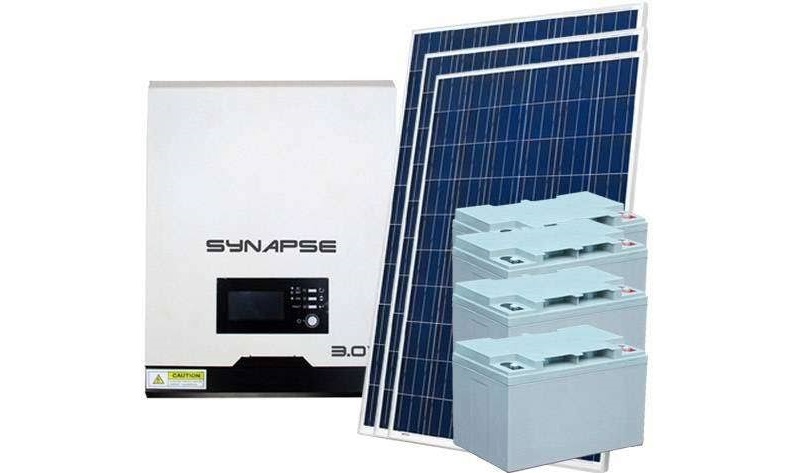How I enjoy 24 hours of electricity with 5 panels and 3 batteries
As I write this, we have not had electricity at our estate in Minna from the grid for five days. This is not unusual. Sometimes we go without it for 72 hours or 48 hours. But not being served by our disco (AEDC) for 24 hours is as common as jollof rice at a Nigerian […]

As I write this, we have not had electricity at our estate in Minna from the grid for five days.
This is not unusual.
Sometimes we go without it for 72 hours or 48 hours. But not being served by our disco (AEDC) for 24 hours is as common as jollof rice at a Nigerian wedding.
On regular days, we don’t get it for more than six hours in 24.
And I’m tired of complaining to my hardworking friend who is in charge of distribution in the Bosso area. In the past, due to my complaints, the MD of AEDC sent a delegation from Abuja to my house in Minna to reassure me and apologize.
On its part, the Niger State government has purchased over 500 transformers and only recently, 5,000 meters. AEDC promised the Governor that after their installation, we will be getting 22 hours of electricity per day.
But I’m not holding my breathe. They made similar promises in the past and I’ve found that the implementation of such promises don’t last more than a week. Besides, many houses in our estate, like mine, are metered, yet the service is dismal.
What to do?
I’ve found a workaround; a solution that gives 24 hours of all my family’s needs – except in one spot of bother.
This is the story of the simple way I did it and how anyone can do it.
With the hot weather already here, I hope this design will help a lot of people.
But first ask yourself what do you use electricity for?
Mainly three things:
- Lighting (children’s homework, security and, as replacement for sunlight at night)
- Work & Entertainment (TV, computers and phones)
- Food preservation
I’ve COMPLETELY weaned myself off the grid for number 1 and number 2. I’m still struggling with number 3.
Some people try to complicate things, mine was also complicated before but it evolved into what it is now. For example, I used to have many batteries. So, for the sake of simplicity, this is a simple breakdown of how I use solar in the house now.
The house is divided into three segments. I’m not an expert, so my friend, who is a solar engineer, designed it for me.
- Living room (parlour):
One big battery connected to two solar panels serves this room and its appliances: TV, sockets, two regular fans and two bulbs and also one bulb in the kitchen and one in the store.
Two out of the three bedrooms were also connected to this system with additional batteries.
But Adam, the aforementioned friend, said that there was a better way. Therefore, …
- Bedrooms (two out of three):
We removed the regular fans and install DC (direct current) fans in both rooms.
This way we eliminated the need for inverter which also consumes electricity. The inverter converts the direct current (DC) from the battery to alternating current (AC) that our AC appliances can use. But if you have DC appliances, there is no need for the conversion and therefore no need for the inverter.
We dedicated two panels and one big battery to the cooling (fans) and lighting (bulbs) needs of the bedrooms.
- Outside lighting:
For security purposes, we have about five DC bulbs around the house. To these, we dedicated one battery and one solar panel. Also, here, no inverter is needed. Although I also have a similar number of regular bulbs outside that we use with the grid supply. But they are not needed.
The spot of bother

What is that one thing for which I still rely on the grid? Refrigerators. We have a deep freezer and a regular fridge.
My wife freaks out if we go without the grid supply for more than a day, which makes me sad.
So for her comfort and also to prevent food from going bad, I’m planning to buy a DC deep freezer, connect it to a panel and battery and we would be completely off the grid. It is only about N200,000 but I keep getting distracted whenever I have the money.
For now, we have a generator to power the freezer.
I know you may have some questions and I hope many people will join this conversation. But this is also an opportunity for solar installers to get customers.
PS: Due to economics of scale and technology, cost of solar is coming down. You can get solar panel from N20,000 and batteries from N40,000.
PPS: You don’t have to do everything at once. Buy one panel, battery and one DC fan to start. Let it be incremental.
